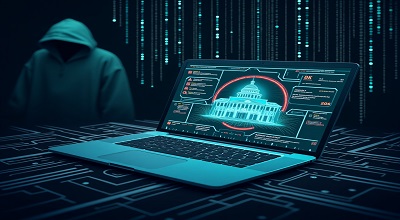Academic Cyber Espionage
Academic Cyber Espionage: In today’s digital age, academic institutions are prime targets for cyber espionage. Universities, research centers, and think tanks hold vast amounts of sensitive data, including cutting-edge research, intellectual property, and government-funded projects. Cybercriminals and state-sponsored hackers frequently exploit weak security measures to steal valuable information.
This comprehensive guide explores the latest trends in academic cyber espionage, its impact, and how institutions can protect themselves.
What Is Academic Cyber Espionage?
Academic cyber espionage refers to the theft of sensitive research, data, or intellectual property from educational institutions via cyberattacks. These attacks are often carried out by:
- State-sponsored hackers (seeking military, scientific, or economic advantages)
- Competitors (looking to gain an edge in research)
- Cybercriminal groups (selling stolen data on the dark web)
Why Are Academic Institutions Targeted?
- Valuable Research Data – Universities conduct high-profile research in AI, biotechnology, and defense.
- Weak Cybersecurity – Many institutions lack strong security protocols.
- Global Collaborations – International partnerships increase exposure to cyber threats.
Latest Trends in Academic Cyber Espionages (2024-2025)
1. AI-Powered Phishing Attacks
Hackers now use AI-generated emails to trick researchers into revealing login credentials. These attacks mimic legitimate academic correspondence.
2. Ransomware Targeting Research Databases
Attackers encrypt critical research files and demand ransom payments, disrupting projects.
3. Supply Chain Attacks
Hackers compromise third-party vendors (e.g., cloud storage providers) to infiltrate university networks.
4. Insider Threats
Disgruntled employees or students may leak sensitive data intentionally.
5. Exploitation of IoT Devices
Weak security in smart campus devices (e.g., lab equipment, surveillance systems) creates entry points for hackers.
Notable Recent Attacks on Academic Institutions
| Institution | Attack Type | Impact |
|---|---|---|
| University of California (2023) | Ransomware | $1.14 million paid |
| Oxford University (2024) | Data breach | 500GB of research stolen |
| MIT (2024) | Phishing scam | Credentials of 200 researchers compromised |
How to Protect Against Academic Cyber Espionage?
1. Implement Strong Access Controls
- Use multi-factor authentication (MFA) for all accounts.
- Restrict access to sensitive data based on roles.
2. Regular Cybersecurity Training
- Train staff and students to recognize phishing scams.
3. Encrypt Sensitive Data
- Use end-to-end encryption for research files and communications.
4. Monitor Network Activity
- Deploy AI-based intrusion detection systems (IDS).
5. Collaborate with Government Agencies
- Work with CISA (US) or NCSC (UK) for threat intelligence.
Future of Academic Cybersecurity
- AI-driven defense systems will become standard.
- Blockchain for research integrity may prevent data tampering.
- Global cybersecurity alliances among universities will rise.
FAQs on Academic Cyber Espionages
1. What is the main goal of academic cyber espionage?
The primary goal is to steal valuable research, intellectual property, or sensitive government-funded data for competitive or geopolitical advantages.
2. Which countries are most active in academic cyber espionages?
Nation-state actors from China, Russia, Iran, and North Korea are frequently linked to such attacks.
3. How can students protect their research from cyber threats?
- Use strong passwords + MFA.
- Avoid clicking on suspicious emails.
- Store data on encrypted platforms.
4. What should a university do after a cyberattack?
- Isolate affected systems.
- Notify law enforcement.
- Conduct a forensic investigation.
5. Are small colleges at risk too?
Yes, smaller institutions often have weaker security, making them easy targets.
Conclusion
Academic cyber espionage is a growing threat with severe consequences. By adopting proactive cybersecurity measures, institutions can safeguard their research and maintain trust. Stay updated with the latest trends to stay protected.

